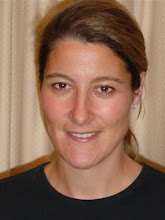
It's often easier to focus on what could be better, what needs mending, so today I want to celebrate success with a brand bluepint that has delivered in every aspect. When we think Disney, we think of a hugely trusted entertainment brand. Films; Mickey Mouse; Disneyland; Disney Channel. It's more. Did you know that it owns 10 TV channels? It is a media owner as well as an advertiser. The Company employs 5 different business models to maximise revenue, delivering what customers want and advertisers need.
It has a magical positioning. For parents, it is a safe haven. No sex or violence in a world where the window of childhood innocence is fast reducing.

A Saturday morning lie-in while the kids watch a film; the Sunday cinema treat; cuddling up together to read a book. To young children it’s just fun. It's “me-time” for older children. No school, homework or household chores. While grandparents see a brand they grew up with, a shared connection with grandchildren experiencing it now just as they did when they were little. Whether logging on to Disney.com or walking into a Disney store, you enter a world of magic. Of make believe.
Business-to-business relationships are strong too. Selling Disney products means quality content; higher cash margins from the price premium; extended shelf life; frequent launches; cutting edge imagery...... Field sales offices are even located next to retailer headquarters around Europe such is their commitment.
The CEO, Bob Iger, has aligned all divisions and cast members, (as staff are called), behind a single strategy.
Focus has switched to fewer, bigger franchises on more platforms and with a longer merchandising tail. All divisions are nurtured to identify fresh platforms e.g. cruise ships, and new franchises e.g. Pirates of the Caribbean which started as a park ride not in Disney Studios.

This is paying dividends. High School Musical started in 2005 as a Disney Channel Film. The soundtrack was released 10 days before the TV premiere. Publishing launched a novel, then as traction grew, a complete series. Consumer Products negotiated licences. 7.5m DVDs were sold. Parks held rallies. Theatricals created school and professional stage productions. The Ice Tour followed, then High School Musical 2. The crowning jewel, High School Musical 3 finally premiered at cinemas in Autumn 2008 to great applause.
What started as a $4m investment became a $500m+ franchise, even before the High School Musical 3 premiere.
$125 for every $1 of initial investment. The financial rewards when brand and business operations work in harmony are high indeed.
 It's always good to share examples where competitive advantage is really working. Usually they've involved some departure from normative thinking....and this example is no exception. Its about talent selection to deliver the ultimate in customer service.
It's always good to share examples where competitive advantage is really working. Usually they've involved some departure from normative thinking....and this example is no exception. Its about talent selection to deliver the ultimate in customer service. 














